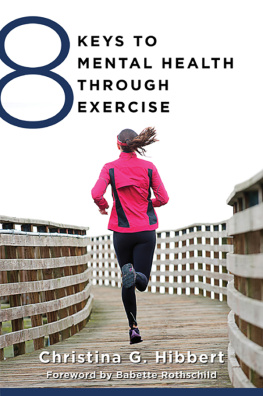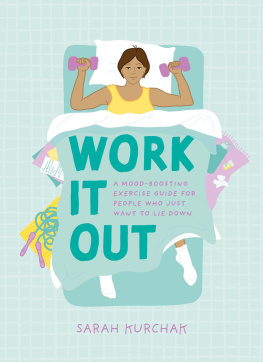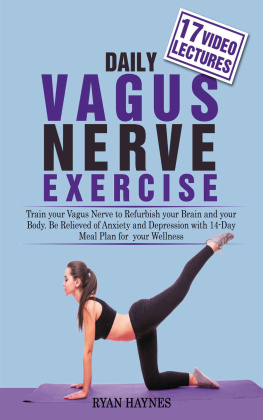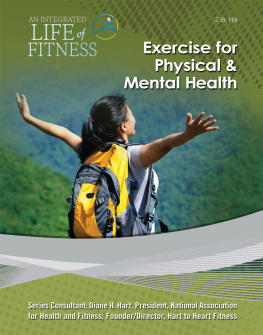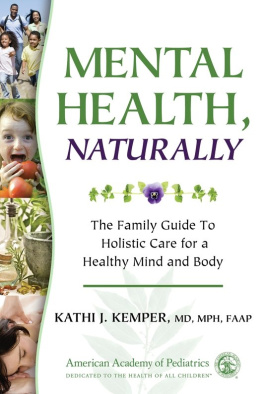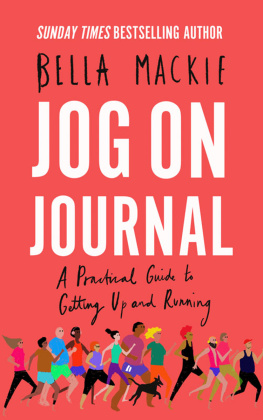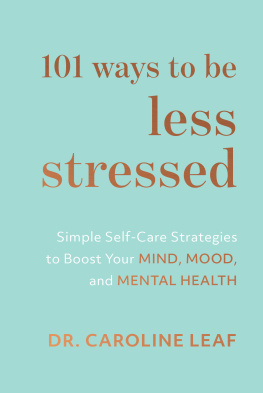
8 KEYS TO
MENTAL HEALTH
THROUGH
EXERCISE
CHRISTINA G. HIBBERT
FOREWORD BY BABETTE ROTHSCHILD

W.W. Norton & Company
Independent Publishers Since 1923
New York London
To Braxton, Tre, Colton, Brody, Kennedy, & Sydney,
for inspiring me each day,
and for sometimes letting me inspire you.
You are my why.
T o my editor, Deborah Malmud, thank you for believing in mefor your encouragement, tough love, and patience. Without your foresight, insight, and sighting of my writing on exercise and mental health, I would never have been given the opportunity to create this book on this topic I love so dearly. I am deeply grateful.
To my husband, OJ, thank you for your endless support. Through the highs and lows of life (and writing), youre always there, offering encouraging words, pushing me forward, and bringing plenty of fun and laughter. You lighten me up! I truly could not do this without you.
To my children, to whom this book is dedicatedyou are my motivation, and you definitely keep me moving! For exercising in the dungeon with me early in the mornings, for all the bike rides, jogs, arm wrestling, basketball games, and for out-performing me so quickly, motivating me to push myself even more. Being your mother is my greatest blessing. Now, if I could just keep pace with your flexibility, energy, and muscle gains, Id be set!
To Babette Rothschild, for your input and guidance as I fumbled toward creating this 8 Keys book, I am grateful. Thank you for allowing me to be part of this series, and thank you for being my foreword author. None of this would be here without you.
To Elizabeth Baird, Alison Lewis, Benjamin Yarling, Angela Riley, Nate Cohan, my fabulous copyeditor, Elizabeth Shestak, and the entire team at Nortonfor your tireless efforts on behalf of this book. You make me look good, and I am grateful!
Finally, to Mechelle, Tyler and Lindsay, Julie, Eric, Barb, and to all of the other individuals who allowed me to use their experiences with exercise for mental health in this bookI cant thank you enough. Through sharing our stories, we feel, we heal, we connect, and we grow. I am endlessly appreciative to have been able to grow in this project with you.
Also available from the
8 Keys to Mental Health Series
8 Keys to Raising the Quirky Child:
How to Help a Kid Who Doesnt (Quite) Fit In
Mark Bowers
8 Keys to Eliminating Passive-Aggressiveness
Andrea Brandt
8 Keys to Recovery from an Eating Disorder:
Effective Strategies from Therapeutic Practice and Personal Experience
Carolyn Costin, Gwen Schubert Grabb
8 Keys to Forgiveness
Robert Enright
8 Keys to Parenting Children with ADHD
Cindy Goldrich
8 Keys to Building Your Best Relationships
Daniel A. Hughes
8 Keys to Old School Parenting for Modern-Day Families
Michael Mascolo
8 Keys to Practicing Mindfulness:
Practical Strategies for Emotional Health and Well-Being
Manuela Mischke Reeds
8 Keys to Safe Trauma Recovery:
Take-Charge Strategies to Empower Your Healing
Babette Rothschild
8 Keys to BrainBody Balance
Robert Scaer
8 Keys to Stress Management
Elizabeth Anne Scott
8 Keys to End Bullying:
Strategies for Parents & Schools
Signe Whitson
It is exercise alone that supports the spirits, and keeps the mind in vigor.
Marcus Cicero, 65 B.C.
Y ou may have picked up this book because you have mental health concerns right now. You may have picked it up because youre considering exercise for the first time. You may have picked it up because youve been an avid exerciser but want to better understand the connection between exercise and mental health. Whatever your reasons, Im grateful youve picked up this book, because exercise is one of the most powerful tools for improving not only your physical health, but also your mental and emotional health.
It appears that even Marcus Cicero knew this back in 65 B.C. Yet, its taken centuries for the rest of us to fully understand the mental health benefits of exercise. Thanks to recent research and ever-expanding understanding of mental health issues and treatments, we now have the proof to back up what we long may have feltthat moving our body quite literally moves our mind.
The Mind-Body Connection
The mind and body are inextricably linked. This means that what happens to the mind affects the body, and vice versa. For example, if I live with untreated depression, my mental/emotional symptoms will eventually affect my physical health. Depression typically includes physical symptoms, like head/backaches, insomnia, and muscle tension or pain. Depression has also been shown to increase ones risk for disease and other conditions, like chronic pain or fatigue and even heart conditions. These disorders, in turn, can worsen depression. This is just one of many examples of how the mind and body are undeniably connected (Trivedi, 2004).
The mind-body connection has long been understood and used in healthcare by eastern cultures, and finally, the western world has also gotten on board, thanks to a boom in research over the years. The research is clear: our brain, immune and endocrine systems, nervous system, and the rest of our organs share a chemical language with our emotional responses. They are in continual communication with one another (Gordon, 2001). The mind and body are inseparable.
This means we can no longer afford to separate our mental well-being from our physical health care. The mind and body greatly influence and are influenced by one another and should be treated as such. It also means we must incorporate physical as well as mental/emotional treatments if we want to overcome emotional distress and mental illness. Simply put, if we want to be well, and to one day flourishor, as I call it, to become even better than better (Hibbert, 2013, p. 401)then we must respect the mind-body connection.
Exercise for Mental (and Physical) Health
Exercise is the perfect way to achieve and balance mental and physical health. Exercise strengthens our heart, muscles, and helps treat a variety of health conditions, while also strengthening emotional resilience, mental clarity, and treating mental illness.
Research shows there are just as many mental health benefits of exercise as there are physical, yet most adults (81.6%) and adolescents (81.8%) fail to get the recommended amount of daily exercise (United States Department of Health and Human Services [USDHHS], 2008). Why are many not exercising when the benefits are so great? Most people dont understand the physical and mental health benefits of exercise, and most dont know how to make exercise work for them.
Well discuss the hows of exercise in , but first, lets examine the research on the many physical, and especially mental, health benefits exercise has to offer.
The Physical Health Benefits of Exercise
The first research study confirming the physical health benefits of exercise wasnt conducted until 1949. This study, by epidemiologist Jerry Morris, compared bus drivers with the more active bus conductors and was the first to prove a link between a sedentary lifestyle and heart disease (Morris, 1958). Morris was consequently credited as the man who invented exercise (Kuper, 2009).
Today, we have a plethora of research demonstrating the physical health gains of exercise. Exercise is correlated with the following desirable health benefits:
Next page
